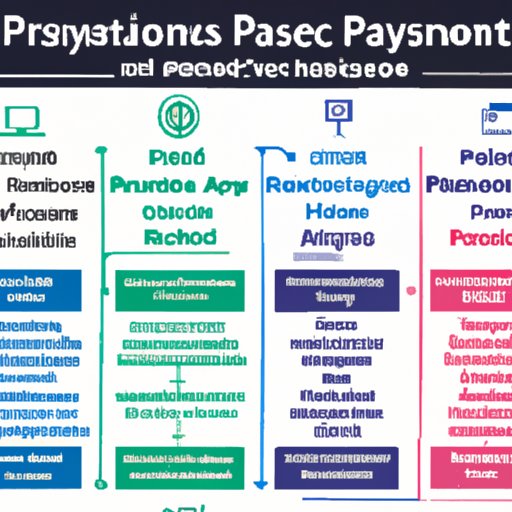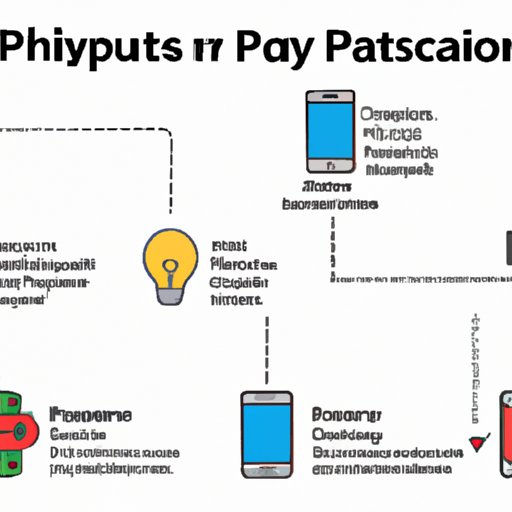Introduction
In today’s digital world, payment processing has become an essential part of any business’s operations. There are numerous payment processors available who offer their services to businesses, but there is also an opportunity to start your own payment processing company. This article will provide an overview of the steps and considerations necessary to start a payment processing business.
Definition of Payment Processing
Payment processing is the process of accepting payments from customers for goods or services, and then transferring those payments to the merchant’s bank account. It involves a variety of different technologies such as credit cards, debit cards, electronic checks, and other digital payment methods. The payment processor acts as an intermediary between the merchant and the customer, verifying the customer’s identity and ensuring that the payment is secure.

Overview of the Different Types of Payment Processing Services
Payment processing companies typically offer a range of services, including:
- Credit and debit card processing
- Electronic check processing
- Online payment processing
- Mobile payment processing
- Recurring billing
- Fraud prevention services
- Customer support

Outline the Necessary Steps to Starting a Payment Processing Company
Starting a payment processing company takes time and effort, but it can be a rewarding endeavor. Here are some of the steps you need to take to set up your business:
Identify the Potential Markets for Payment Processing Services
Before you can start your payment processing company, you need to identify the potential markets for your services. Consider the types of businesses that could benefit from payment processing services, such as retail stores, ecommerce sites, travel agencies, and subscription services. Research the competition in each of these markets to determine which ones offer the best opportunities for your business.
Research the Regulations and Licensing Requirements for Payment Processors
Payment processing is heavily regulated, so it’s important to understand the laws and regulations governing the industry. Depending on where you plan to operate, you may need to obtain licenses or permits from local, state, and federal governments. You should also familiarize yourself with the Payment Card Industry (PCI) Data Security Standard, which sets the guidelines for protecting customer data.
Develop a Business Plan for Your Payment Processing Company
Once you have identified the markets and researched the regulations, you need to develop a comprehensive business plan for your payment processing company. A business plan should include information about your company’s goals, services, target market, pricing structure, and financial projections. It’s also important to consider how you will manage customer data and protect against fraud.
Obtain Financing for Your Payment Processing Company
You will need to secure financing for your payment processing company, either through investors or a loan. Consider the costs associated with developing the technical infrastructure, marketing, and hiring staff. Make sure to create a budget and put together a presentation to show potential investors or lenders.

Set Up the Technical Infrastructure for Payment Processing
Once you have obtained financing, you can begin to set up the technical infrastructure for your payment processing company. This includes choosing the appropriate technology, establishing connections with banks and financial institutions, and setting up payment gateways.
Choosing the Appropriate Technology
The technology you choose for your payment processing company will depend on the type of services you offer. You should research the different payment processing solutions available and select one that meets your needs. Consider factors such as cost, security, scalability, and ease of use.
Establishing Connections with Banks and Financial Institutions
You will need to establish connections with banks and other financial institutions in order to process payments. These connections will allow you to securely transfer funds to and from customers’ accounts. You should research the different options available and select the one that best meets your needs.
Setting up Payment Gateways
A payment gateway is a secure connection between your payment processing company and the customer’s bank. It allows customers to make payments online or via mobile devices. You should research the different payment gateways available and select one that is compatible with your chosen technology.
Market Your Payment Processing Company
Once you have set up the technical infrastructure for your payment processing company, it’s time to start marketing your services. Here are some tips for getting the word out about your business:
Establish an Online Presence
In today’s digital world, having an online presence is essential. You should create a website for your payment processing company and optimize it for search engines. You should also consider creating profiles on popular social media platforms such as Facebook, Twitter, and LinkedIn.
Develop a Network of Partners
You should also consider partnering with other companies that offer complementary services. For example, if you offer payment processing services for ecommerce websites, you could partner with web developers or hosting companies. These partnerships can help you reach new customers and increase awareness of your brand.
Leverage Social Media
Social media is a great way to promote your payment processing company. You can use social media to share updates about your services, answer customer questions, and engage with potential customers. You should also consider running targeted ads on social media platforms to reach new customers.
Conclusion
Starting a payment processing company is a complex process that requires research, planning, and investment. You need to identify potential markets, research regulations and licensing requirements, develop a business plan, obtain financing, set up the technical infrastructure, and market your services. With the right approach and dedication, you can create a successful payment processing business.
(Note: Is this article not meeting your expectations? Do you have knowledge or insights to share? Unlock new opportunities and expand your reach by joining our authors team. Click Registration to join us and share your expertise with our readers.)
